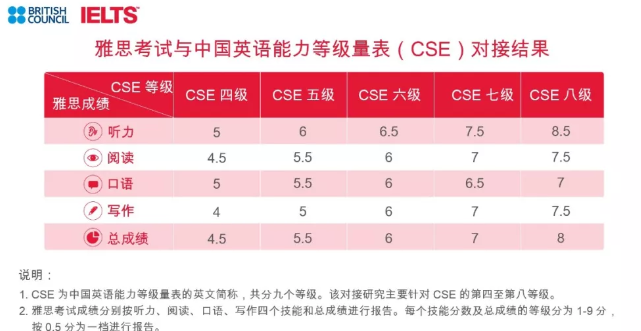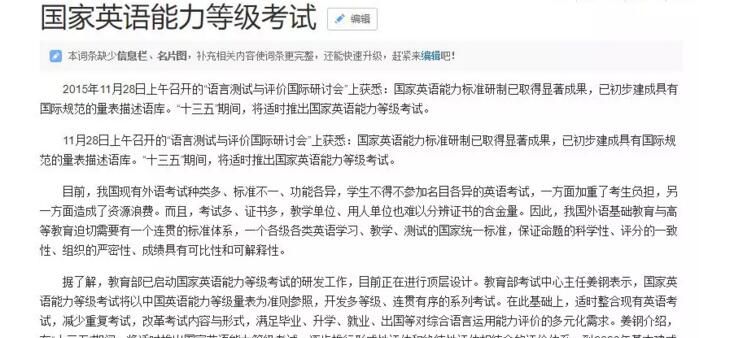|
中华人民共和国法官职业道德基本准则The Code of Judicial Ethics for Judges of the People's Republic of China 造就一支政治坚定、业务精通、作风优良、清正廉洁、品德高尚的法官队伍,是依法治国、建设社会主义法治国家的重要条件,是人民法院履行宪法和法律职责的重要保障。
To train a group of high-quality judges with firm political position, professional conversance, good conduct and honesty is an important condition for the rule of law and the construction of a socialist country ruled by law and is also an important safeguard for the people's court to implement the Constitution and exercise judicial functions. 法官具有良好的职业道德,对于确保司法公正、维护国家法治尊严至关重要。
The high standard judicial ethics of judges is very important to ensure judicial impartiality and to protect the authority and dignity of the Judiciary. 为规范和完善法官职业道德标准,提高法官职业道德素质,维护法官和人民法院的良好形象,根据《中华人民共和国法官法》和国家其他有关规定制定本准则。
This code is enacted in accordance with the Judges Law of the People's Republic of China and other relevant regulations to regulate and improve the standard of judicial ethics for judges, to enhance the professional quality of judges and maintain the good image of judges and the people's court. 一、保障司法公正
Chapter 1: Safeguard Judicial Impartiality 第一条 法官在履行职责时,应当切实做到实体公正和程序公正,并通过自己在法庭内外的言行体现出公正,避免公众对司法公正产生合理的怀疑。
Article 1. A judge should strive to achieve substantial impartiality and procedural impartiality in performing his duties. A judge should appear to be impartial through his words and conduct so as to avoid any reasonable doubt from the public upon judicial impartiality. 第二条 法官在履行职责时,应当忠实于宪法和法律,坚持和维护审判独立的原则,不受任何行政机关、社会团体和个人的干涉,不受来自法律规定之外的影响。
Article 2. A judge should perform his duties in accordance with the Constitution and other laws and on the principle of judicial independence. A judge should perform his duties with no interference from administrative departments, social organisations or individuals and no influence other than the influence from laws. 第三条 法官在审判活动中,除了应当自觉遵守法定回避制度外,如果认为自己审理某案件时可能引起公众对该案件公正裁判产生合理怀疑的,应当提出不宜审理该案件的请求。
Article 3. During the trial process the judge shall abide by recusation principle. A judge shall disqualify himself mi a lawsuit in which the judge's impartiality might reasonably be questioned. 第四条 法官应当抵制当事人及其代理人、辩护人或者案外人利用各种社会关系的说情,并按照有关规定处理。
Article 4. A judge should resist the influence from the parties, attorney, defendants and other people or through their social contacts and should handle the situation according to relevant regulations 第五条 法官不得违背当事人的意愿,以不正当的手段迫使当事人撤诉或者接受调解。
Article 5. A judge should not, against the will of the parties, use improper means to force the parties to withdraw the proceeding or accept mediation. 第六条 法官应当公开并且客观地审理案件,自觉接受公众监督。但是,法律规定不公开或者可以不公开审理的除外。
Article 6. A judge should make all the judgements openly and objectively and accept the supervision from the public. This proscription does not extend to the cases cannot be opened or cannot have an open trial according to law. 第七条 法官在审判活动中,应当独立思考、自主判断,敢于坚持正确的意见。
Article 7. During the process of a lawsuit, a Judge should reason and adjudicate independently and insist the right opinion. 第八条 法官在审判活动中,不得私自单独会见一方当事人及其代理人。
Article 8. During the process of a lawsuit, a Judge should not meet one party or his or her agent without authorisation. 第九条 法官在审判活动中,应当避免主观偏见、滥用职权和忽视法律等情形的发生。
Article 9. A judge should avoid prejudice, misuse of his function and neglect of law in performing his duties. 第十条 法官在履行职责时,应当平等对待当事人和其他诉讼参与人,不得以其言语和行为表现出任何歧视,并有义务制止和纠正诉讼参与人和其他人员的任何歧视性言行。
Article 10. A judge should treat all the parties and participants of the proceeding equally in performing his duties. The judge should not by words or conduct manifest any discrimination. The judge has the responsibility to stop and correct any discriminatory words or conduct by any participants or other people. 法官应当充分注意到由于当事人和其他诉讼参与人的民族、种族、性别、职业、宗教信仰、教育程度、健康状况和居住地等因素而可能产生的差别,保障诉讼各方平等、充分地行使诉讼权利和实体权利。
A judge should be fully aware of the possible differences may arise from nationality, race, sex, profession, religion, education level, health, residence and other factors and shall safeguard the equally and fully implementation of the litigation right and other rights of all the parties. 第十一条 法官审理案件应当保持中立。
Article 11. A judge should be neutral during the trial. 法官在宣判前,不得通过言语、表情或者行为流露自己对裁判结果的观点或者态度。
Before the judgment is rendered, a judge should not express his views or attitude towards the judgement through his words, expression or conduct. 法官调解案件应当依法进行,并注意言行审慎,避免当事人和其他诉讼参与人对其公正性产生合理的怀疑。
A judge should adjudicate according to law and be careful with his words and conduct during the proceedings so as to avoid any reasonable doubts upon his neutrality from the parties and other participants. 第十二条 法官对与当事人实体权利和诉讼权利有关的措施和裁判应当依法说明理由,避免主观、片面地作出结论或者采取措施。
Article 12. A judge should specify the reasons for the measures and judgement relating to the substantial rights and litigating right of the parties. A judge should not make a conclusion or take any measures subjectively and unilaterally. 第十三条 法官应当尊重其他法官对审判职权的独立行使,并做到:
Article 13. A judge should respect the right of other judges to perform their duties independently and: (一)除非基于履行审判职责或者通过适当的程序,不得对其他法官正在审理的案件发表评论,不得对与自己有利害关系的案件提出处理建议和意见;
(1) should not give any comments on the lawsuits being handled by other court or give any suggestions or opinions on a lawsuit in which he has personal interests. This proscription does not extend to the situation when the judge is exercising his judicial duties or is giving comments or suggestions through proper procedures, (二)不得擅自过问或者干预下级人民法院正在审理的案件;
(2) should not ask about or interfere in the lawsuits being handled by the subordinate courts without authorisation. (三)不得向上级人民法院就二审案件提出个人的处理建议和意见。
(3) should not issue his personal views to the superior courts about the second instance cases. 第十四条 法官除履行审判职责或者管理职责外,不得探询其他法官承办案件的审理情况和有关信息。
Article 14. A judge should not ask for information about the lawsuits being handled by other judges unless he is performing adjudicative or administrative duties. 法官不得向当事人或者其代理人、辩护人泄露或者提供有关案件的审理情况、承办案件法官的联系方式和其他有关信息;不得为当事人或者其代理人、辩护人联系和介绍承办案件的法官。
A judge should not disclose or provide information about a lawsuit, the ways to contact the judge in charge or other related information to the parties, attorney and defendants. A judge should not introduce or contact the judge in charge for the parties, attorney and defendants. 第十五条 法官在审理案件的过程中,应当避免受到新闻媒体和公众舆论的不当影响。
Article 15. A judge should avoid improper influence from the media or the public during the process of the lawsuit. 第十六条 法官在公众场合和新闻媒体上,不得发表有损生效裁判的严肃性和权威性的评论。如果认为生效裁判或者审判工作中存在问题的,可以向本院院长报告或者向有关法院反映。
Article 16. A judge should refrain from giving any comments in public or to the media, which is detrimental to the seriousness and authority of a valid judgement. If a judge thinks there is something wrong with a valid judgement or the trial process, he may report to the president of the court or report to the relevant courts. 第十七条 法官根据获得的情况确信,其他法官有可能或已经违反法官职业道德,或者其他法律工作者有可能或已违反职业道德,影响司法公正的,应当采取适当的措施向有关部门或者有关机关反映。
Article 17. A judge having definite evidence to believe other Judges may, or have already violated the professional ethics of judges, or other judiciary personnel may or have already violated their professional ethics and these conduct may influence the Judicial impartiality should take appropriate measures or inform the relevant authorities. 二、提高司法效率
Chapter 2: Enhance Judicial Efficiency 第十八条 法官应当勤勉敬业,全身心地致力于履行职责,不得因个人的事务、日程安排或者其他行为影响职责的正常履行。
Article 18. A judge should be diligent and devoted to the performance of his duties. A judge's personal matters, schedule or other activities should not conflict with his or her judicial duties. 第十九条 法官应当遵守法律规定的诉讼期限,在法定期限内尽快地立案、审理、判决。
Article 19. A judge should abide by the time limit for lawsuit regulated by law and should accept the case, hear the proceeding and make judgement within the time limit. 第二十条 法官必须杜绝粗心大意、无故拖延、贻误工作的行为,认真、及时、有效地完成本职工作,并做到:
Article 20. A judge should avoid carelessness and delay without proper reason and dispose his business seriously, promptly and efficiently, and should: (一)合理安排各项审判事务,提高诉讼效率;
(1) enhance efficiency through proper arrangements of judicial business. (二)对于各项司法职责的履行都给予足够的重视,对于所承办的案件都给予同样审慎的关注,并且投入合理的、足够的时间;
(2) pay enough attention to the performance of all judicial duties and handle every case with same attention and carefulness and devote reasonably enough time. (三)在保证审判质量的前提下,注意节省当事人及其代理人、辩护人的时间,注重与其他法官和其他工作人员共事的有效性。
(3) with the precondition of high quality of judgement, save time for the parties, attorney and defendants and pay attention to the efficient cooperation with other judges and staffs. 第二十一条 法官在审判活动中应当监督当事人遵守诉讼程序和各种时限规定,避免因诉讼参与人的原因导致不合理或者不必要的延误。
Article 21. A judge should supervise the parties to abide by the procedures and respect all the time limits, so as to avoid unreasonable or unnecessary delay caused by the parties. 第二十二条 法官在执行生效法律文书时,应当依法采取有效措施,尽快予以执结。
Article 22. A judge should take effective measures to enforce the valid judgement as soon as possible. 三、保持清正廉洁
Chapter 3: Keep Honest and Clean 第二十三条 法官在履行职责时,不得直接或者间接地利用职务和地位谋取任何不当利益。
Article 23. A judge is not allowed to use his capacities directly or indirectly to obtain any improper benefit. 第二十四条 法官不得接受当事人及其代理人、辩护人的款待、财物和其他利益。
Article 24. A judge is not allowed to accept entertainment, money, gifts or other benefit from the parties, attorney and defendants. 第二十五条 法官不得参与可能导致公众对其廉洁形象产生不信任感的商业活动或者其他经济活动。
Article 25. A judge is not allowed to participate commercial or other economic activities which may lead the public to cast doubt on his image of being honest and clean. 第二十六条 法官应当妥善处理个人事务,不得为了获得特殊照顾而有意披露自己的法官身份;不得利用法官的声誉和影响为自己、亲属或者他人谋取私人利益。
Article 26. A judge should handle his personal issues properly, and should not disclose his capacity as a judge intentionally for special treatment. A judge should not use the prestige and influence of a judge to seek personal interests for himself, his relatives or other people. 第二十七条 法官及其家庭成员的生活方式和水准,应当与他们的职位和收入相符。
Article 27. The life style and standard of a judge and his family should consist with their position and income. 第二十八条 法官不得兼任律师、企事业单位或者个人的法律顾问等职务;不得就未决案件给当事人及其代理人、辩护人提供咨询意见和法律意见。
Article 28. A judge cannot act as a lawyer or Judicial advisor for enterprises, organisations or individuals at the same time. A judge is not allowed to provide advice or Judicial suggestion on pending cases to the parties, attorney and defendants. 第二十九条 法官应当按照国家有关规定如实申报财产。
Article 29. A judge should report his income and property according to relevant regulations. 第三十条 法官必须向其家庭成员告知法官行为守则和职业道德的要求,并督促其家庭成员不得违反有关规定。
Article 30. A judge should inform his family members about the requirements for a judge mi judicial conduct and professional ethics and urge his family members not to violate relevant regulations. 四、遵守司法礼仪
Chapter 4: Observation of Judicial Decorum 第三十一条 法官应当严格遵守各项司法礼仪,保持良好的仪表和文明的举止,维护人民法院的尊严和法官的良好形象。
Article 31. A judge should strictly observe the Judicial decorum and keep good appearance and conduct, so as to preserve the authority of the people's court and the good image of the judge. 第三十二条 法官应当尊重当事人和其他诉讼参与人的人格尊严,并做到:
Article 32. A judge should respect the human dignity of the parties and other participants, and should: (一)认真、耐心地听取当事人和其他诉讼参与人发表意见;除非因维护法庭秩序和庭审的需要,开庭时不得随意打断或者制止当事人和其他诉讼参与人的发言;
(1) hear the parties and other participants carefully and patiently and should not interrupt or stop a party or other participants unless for the reason of protecting the order of the court or because of the requirement of a trial. (二)使用规范、准确、文明的语言,不得对当事人或其他诉讼参与人有任何不公的训诫和不恰当的言辞。
(2) use standard, correct and civilized language and should not admonish or say improper words to the parties or other participants. 第三十三条 法官开庭时应当遵守法庭规则,并监督法庭内所有人员遵守法庭规则,保持法庭的庄严,并做到:
Article 33. A judge should comply with the rules of the court during the trial and should require all the staff of that court to do so and maintain the dignity of the court, and should: (一)按照有关规定穿着法官袍或者法官制服、佩带徽章,并保持整洁;
(1) wear robe or uniform according to relevant regulations, wear badge and keep clean and tidy; (二)准时出庭,不缺席、迟到、早退,不随意出进;
(2) appear to the court on time, do not be absent or late and do not leave early or enter or leave the court at his pleases; (三)集中精力,专注庭审,不做与审判活动无关的事。
(3) concentrate on the lawsuit and the hearing, do nothing irrelevant with the lawsuit. 五、加强自身修养
Chapter 5: Enhance Self-Cultivation 第三十四条 法官应当加强修养,具备良好的政治、业务素质和良好的品行,忠实地执行宪法和法律,全心全意为人民服务。
Article 34. A judge should enhance his professionalism and should have high political and professional quality. A judge should implement the Constitution and laws faithfully and serve the people whole-heartedly. 第三十五条 法官应当具有丰富的社会经验和对社会现实的深刻理解。
Article 35. A judge should have rich social experience and profound understanding to the social reality. 第三十六条 法官有权利并有义务接受教育培训,树立良好的学风,精研法理,汲取新知识,提高驾驭庭审、判断证据、制作裁判文书等各项司法技能,具备审判工作所必需的知识和专业能力。
Article 36. A judge has the right and obligation to be trained and educated and should study the judicial theory and absorb new knowledge diligently so as to improve his abilities and skills of controlling a trial, deciding evidences and writing Judicial documents. A Judge should possess the necessary knowledge and professional ability to perform his function. 第三十七条 法官在日常生活中,应当严格自律,行为检点,培养高尚的道德操守,成为遵守社会公德和家庭美德的楷模。
Article 37. A judge should be self-disciplinary and without impropriety at his daily life. A judge should cultivate a high standard moral criterion and act as a model of observing public and family virtues. 六、约束业外活动
Chapter 6: Limitation of Extra-Judicial Activities 第三十八条 法官从事各种职务外活动,应当避免使公众对法官的公正司法和清正廉洁产生合理怀疑,避免影响法官职责的正常履行,避免对人民法院的公信力产生不良影响。
Article 38. The extra?judicial activities of a judge should cause no reasonable doubt of the public upon his impartiality and honesty, should not affect the performance of his functions and should not cause negative impact on the trustworthiness of the people's court. 第三十九条 法官必须杜绝与公共利益、公共秩序、社会公德和良好习惯相违背的,可能影响法官形象和公正履行职责的不良嗜好和行为。
Article 39. A judge should refuse and stop any hobby or conduct which is against the public interest, public order, social virtue and customs and may influence the image of judge and his impartiality. 第四十条 法官应当谨慎出入社交场合,谨慎交友,慎重对待与当事人、律师以及可能影响法官形象的人员的接触和交往,以免给公众造成不公正或者不廉洁的印象,并避免在履行职责时可能产生的困扰和尴尬。
Article 40. A judge should be careful in making social contacts and friends. A judge should carefully handle the contacts with the parties, lawyers and other persons who are possible to influence the image of the judge, so as to avoid the impression of public that the judge is not impartial or not honest and avoid the possible confusion and embarrassment in the performance of his functions. 第四十一条 法官不得参加带有邪教性质的组织。
Article 41. A judge should not join any organisation with a nature of evil religion. 第四十二条 法官在职务外活动中,不得披露或者使用非公开的审判信息和在审判过程中获得的商业秘密、个人隐私以及其他非公开的信息。
Article 42. A judge should not disclose or use the judicial information of a close trial or business secret, personal privacy and other confidential information acquired during the process of a lawsuit. 第四十三条 法官不得参加营利性社团组织或者可能借法官影响力营利的社团组织。
Article 43. A judge should not join any profit-making organisation or any organisation may make profit by using the influence of the judge. 第四十四条 法官可以参加有助于法制建设和司法改革的学术研究和其他社会活动。
Article 44. A judge may participate in academic research and other social activities which are helpful in promoting judicial construction and judicial reform. 但是,这些活动应当以符合法律规定、不妨碍公正司法和维护司法权威、不影响审判工作为前提。
However, these activities should be in compliance with the law, construct no obstruction to Judicial impartiality and the preservation of judicial authority and will not conflict with the judge's judicial function. 第四十五条 法官发表文章或者接受媒体采访时,应当保持谨慎的态度,不得针对具体案件和当事人进行不适当的评论,避免因言语不当使公众对司法公正产生合理的怀疑。
Article 45. A judge should be cautious in publishing a paper or interview with the media. The judge should not issue any improper comments on specific lawsuits or parties so as to avoid reasonable doubt upon judicial impartiality caused by improper wording. 第四十六条 法官退休后应当继续保持自身的良好形象,避免因其不当言行而使公众对司法公正产生合理的怀疑。
Article 46. After retirement, a judge should continue to maintain a good image and should avoid the reasonable doubt of the public upon judicial impartiality caused by his improper words or conduct. 附 则
Supplementary Provisions 第四十七条 各级人民法院指导、监督本院法官遵守本准则。
Article 47. The courts at different levels should provide guidance and exercise supervision in the implementation of this code in their own court. 第四十八条 人民陪审员依法履行审判职责期间,应当遵守本准则。人民法院的行政人员和法警,参照执行本准则的有关规定。
Article 48. The jurors shall be administered by this code when they are exercising judicial function. The administrative personnel and judicial police shall be administered with reference to the relevant provisions of this code. 第四十九条 本准则由最高人民法院负责解释。
Article 49. The Supreme Court will be responsible for the explanation of this code. 第五十条 本准则自发布之日起施行。
Article 50. This code shall come into force as of the date of issue [18 October 2001]. | 







